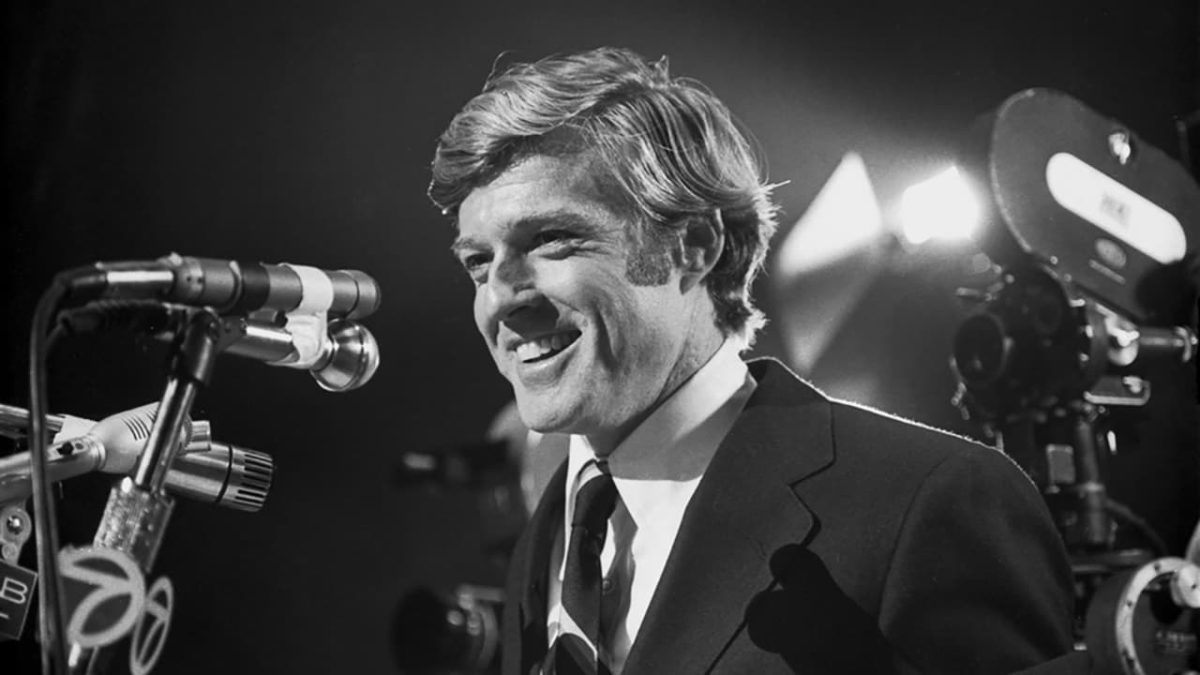Politics in the Movies
We have never been overburdened with movies about electoral politics, probably because the process of running for office in this country is in itself such a highly entertaining pastime, at least for spectators. What movie can hope to equal for thrills, chills and spills the wind sprints the Democrats have been running in the primaries this past spring?
So a movie like The Candidate (or, as you might call it. The Selling of the Would-Be Senator from California, 1972) faces an uphill battle at least as tough as George McGovern’s appeared to be a year ago. And I doubt it will end up running as well as McGovern has; he’s better on the issues. In fact, it’s sad to note the way the real-life candidate, who has something to lose, is willing to deal with something as dangerous and complex as the redistribution of wealth, while the fictional candidate runs a safe and vaguely defined platform of helping the poor, improving the environment, and looking sexy.
In all fairness, the movie’s main concern is not ideology. Writer Jeremy Lamer and director Michael Ritchie are more interested in showing how, in the process of being merchandised, an allegedly idealistic and potentially abrasive candidate (Robert Redford) is turned into a gasbag no better than his middle-aged opponent—just cuter, more “dynamic.” It’s a thesis familiar enough to anybody who’s been reading the papers for the last decade or so. But it’s also one untouched by filmmakers, innocent souls who are always astonished to discover that the rest of the world is at least as wicked as show biz.
Let that pass. The real trouble is that Redford’s character, and the ideas he mouths, are so bland and agreeable at the outset that his fate at the end, when both have merely become a little more so, seems less a personal tragedy or an indictment of the system than a simple case of self-discovery—dull fellow finding out he’s a dull fellow.
And dull fellows run dull campaigns. This one is without any of the inner dynamics that Teddy White and so many other journalists have made familiar to us. There are no dramatic challenges, no great crises over strategy, no jostlings for power among the staff, no sense of the exhaustion and hysteria that in real life generally attend enterprises of this kind. Peter Boyle and Allen Garfield have some nice cynical moments as the candidate’s chief aides; Don Porter is wonderfully unctuous as their opponent; Melvyn Douglas is his gruff, engaging self as the candidate’s father, himself a veteran pol of the old style. But they are all arbitrarily pasted into this scene. They develop no strong relationships among themselves or with the candidate. And without such relationships there can be no drama worth talking about. Even Redford, normally an actor who enjoys taking risks, breaking through a script’s constraints, is all buttoned up here until, too late, he finds a couple of good, powerful moments in which to comment satirically on the monomania of the running politician.
These moments suggest what the movie might have been—not just thinly fictionalized journalism, not just an imitation of a very familiar aspect of contemporary art, but a means of bringing to bear on politics a thing rarely applied to the subject, the insights of art. Without them, The Candidate is what it is—superfluous.
Life, July 7, 1972





